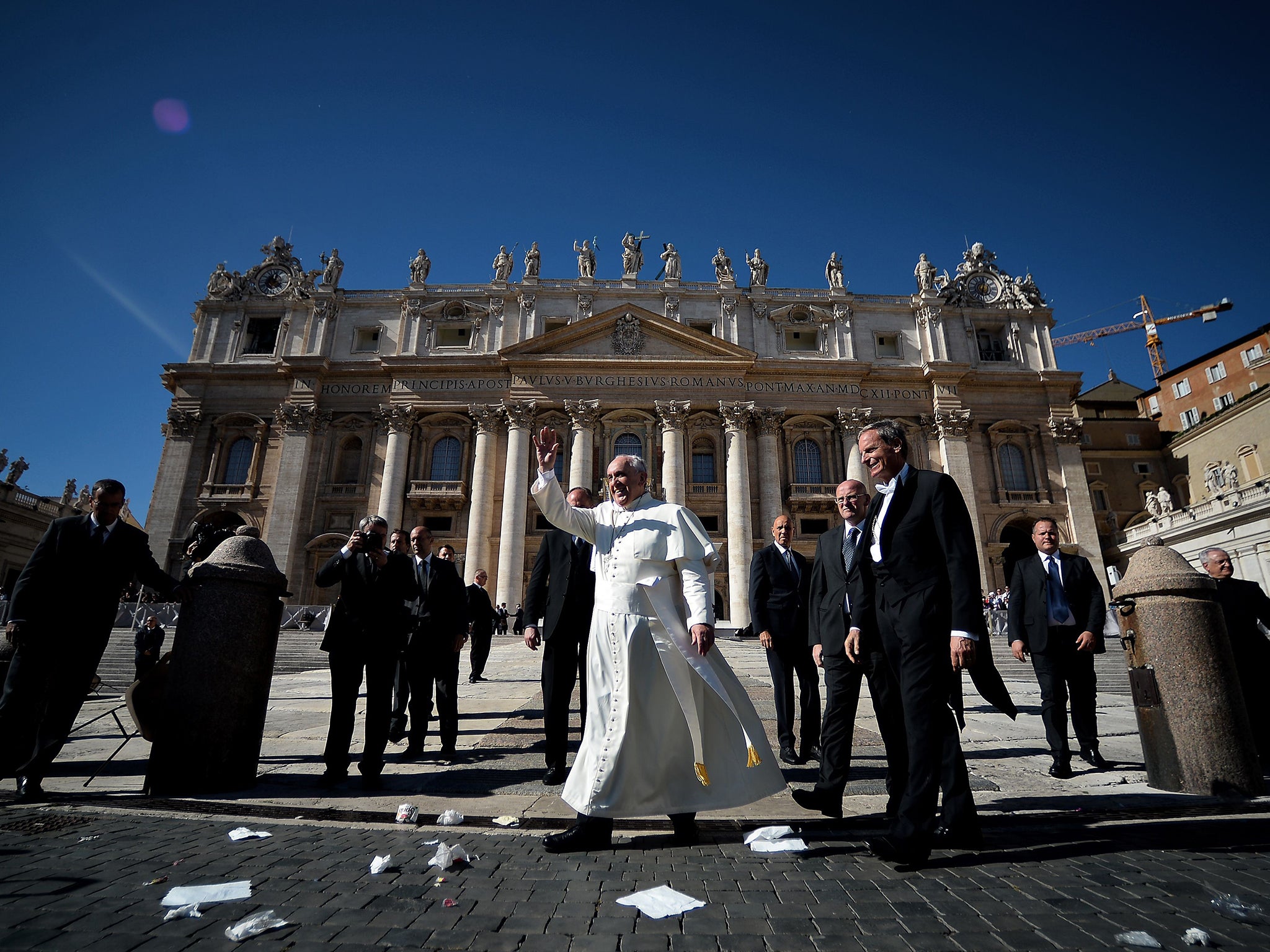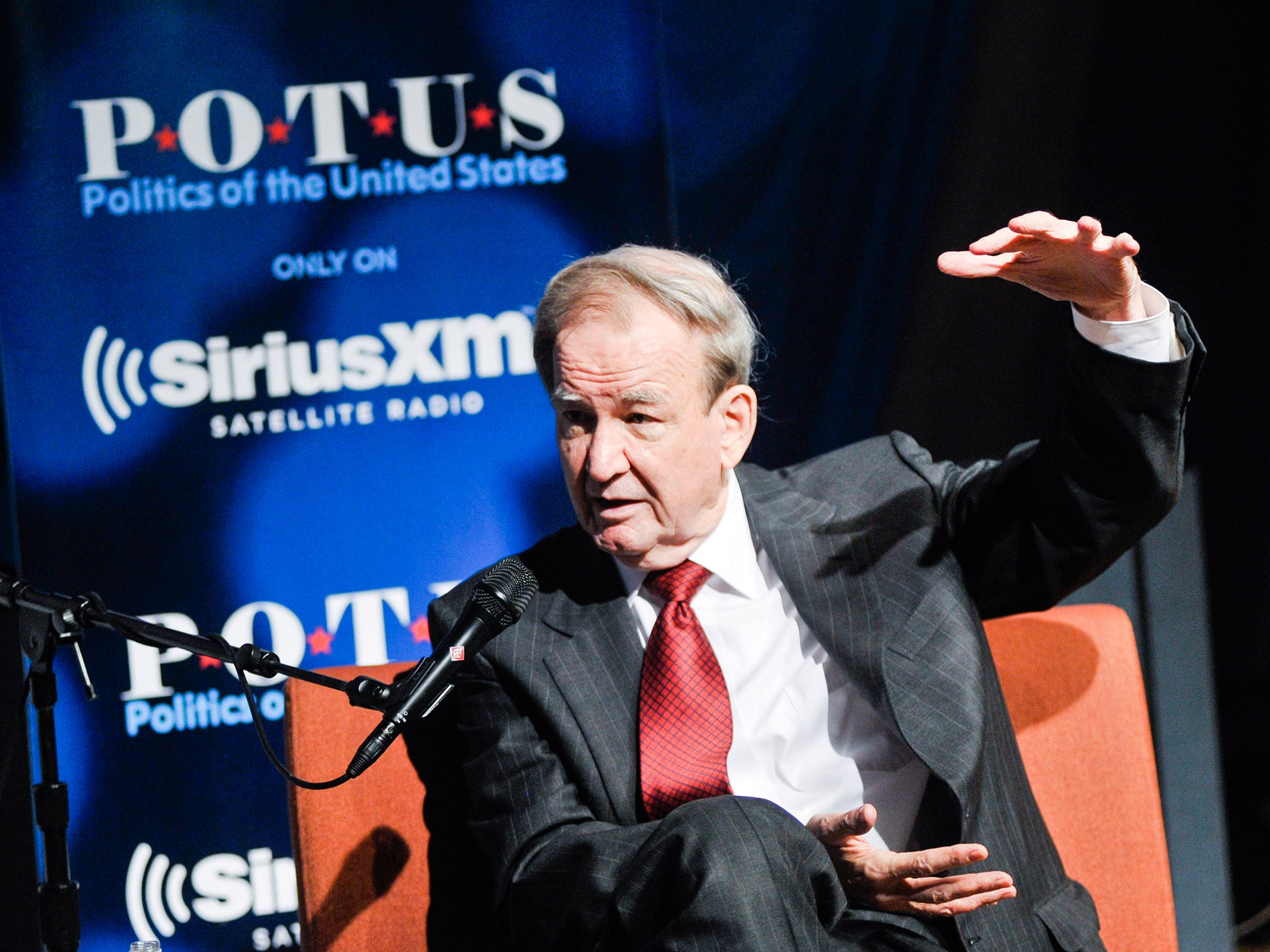The Catholic Church is changing – and the gates of reaction shall not prevail against it
The recent synod of Catholic bishops was extraordinary in more ways than one. Paul Vallely explains why Pope Francis won’t be stopped by ‘hostile rigidity’

Your support helps us to tell the story
From reproductive rights to climate change to Big Tech, The Independent is on the ground when the story is developing. Whether it's investigating the financials of Elon Musk's pro-Trump PAC or producing our latest documentary, 'The A Word', which shines a light on the American women fighting for reproductive rights, we know how important it is to parse out the facts from the messaging.
At such a critical moment in US history, we need reporters on the ground. Your donation allows us to keep sending journalists to speak to both sides of the story.
The Independent is trusted by Americans across the entire political spectrum. And unlike many other quality news outlets, we choose not to lock Americans out of our reporting and analysis with paywalls. We believe quality journalism should be available to everyone, paid for by those who can afford it.
Your support makes all the difference.Can you be more Catholic than the Pope?
The American arch-reactionary Pat Buchanan clearly thinks so. He has been lambasting Pope Francis for sowing “confusion among the faithful” by refusing to defend “the unchanging truths of Catholicism”.
Indeed, says the US Catholic paleo-conservative, the Pope may be “speaking heresy”, which would imply that Francis is “not a valid pope”.
Yet how does this high-octane indignation square with widespread reports at the end of last week that a liberal Pope had been defeated by doctrinaire traditionalists in his attempts to make the Church more welcoming to gays and divorcees? The fortnight-long Extraordinary Synod on the Family ended with headlines like: “Pope snubbed” and “Liberal Hopes Dashed”.
The answer is that, as the dust settles, what has become clear is that, for all the hoo-ha made by conservative cardinals, the overall outcome has been a remarkable advance for those who want the Catholic Church to be more compassionate and inclusive. The vociferous minority who tried to box the Pope into a corner, on gays and divorcees who remarry, may have won one small battle. But they are losing the wider war.
To understand why, you need to know something of the “two steps forward, one step back” method of making progress within the Catholic Church. Pope Francis knows he is operating in a deeply conservative environment which requires a “softly softly” approach.
The truth is that this Synod was extraordinary in many ways. The story began last year when Pope Francis asked for a questionnaire to be sent out all around the world to find out what ordinary Catholics thought about the teachings of their church on a range of controversial issues like premarital sex, contraception, divorce, remarriage and same-sex relationships.
This had never been done before. Indeed, previous popes made it clear that they did not want to know what the people in the pew thought. They should just pray, pay and obey. Next Pope Francis focused the agenda by inviting one of the Church’s major progressives, Cardinal Walter Kasper of Germany, to make the case to his fellow cardinals for lifting Rome’s ban which forbids Catholics who have divorced and remarried from receiving Communion.
Then, at the opening of the Synod, the Pope binned the approach of previous popes which discouraged debate, silenced theologians and suppressed dissent. Instead he announced he wanted a strong and vigorous debate. People should listen with humility but speak with clarity and boldness. There was to be no self-censorship by cardinals who feared their views might upset the Pope. This stood in stark contrast to previous synods where Vatican officials went round privately telling participants not to mention certain subjects.

The Pope certainly got the frank debate he wanted. It was so open that, halfway through the synod, an interim report on the discussion between the 190 cardinals, bishops and others was described as a “pastoral earthquake” because of its unprecedented language of welcome and appreciation for gay people, as well as remarried Catholics and cohabiting couples.
It was immediately met by strong dissent from a conservative minority who felt their views were unrepresented in the interim report. “The document lacks a solid foundation in the Sacred Scriptures and the Magisterium,” thundered Cardinal Raymond Burke, who heads the Vatican’s most senior court – and who was a key figure on the body that chooses new Catholic bishops until Pope Francis ousted him last year. The pope’s “lack of clarity about the matter has certainly done a lot of harm”. Few would be surprised if, as Cardinal Burke has claimed, the Pope is about to remove him from the Church’s top court.
The vehemence of the response had its impact. When the bishops came to vote on the gay and remarriage issues most voted in favour of a more compassionate approach. But the votes did not achieve the two-thirds majorities desired in synods. The media reported that as a defeat for Pope Francis.
The reality was different. The way the Church governs itself has been significantly changed. Bishops are now openly discussing ideas for which they could have been investigated, censured, silenced or fired under previous papacies.
And a growing number of reform-minded bishops voted against the final text because it was too conservative rather than too liberal. The Archbishop of Westminster, Cardinal Vincent Nichols, said he did not vote for the final wording on gays because it did not include the words welcome, respect and value. Archbishop Joseph Kurtz, head of the Conference of Bishops in the US, made a point of using the language of welcome that the final text had rejected.
A year of intense debate will now follow – and not just on the final document but on the interim text and other synod papers. The issues will then appear before an even larger Synod next October.
Pope Francis will want to bring along the majority of people with his instincts for change. But he will continue to send out signals of his desire. He will continue to appoint bishops who share his vision and who, in his famous phrase, are shepherds who “smell of their sheep”.
At the end of the synod, in a speech to the bishops which received a four-minute standing ovation, Francis showed no sign of disappointment with the process. “Personally I would have been very worried and saddened if there hadn’t been these … animated discussions … if everyone had agreed with one another or had kept silent in a false and acquiescent peace,” he said.
Next day, at the beatification ceremony for Pope Paul VI, whom the present Pope lauded as the father of synodical government in the modern Church, Francis celebrated change. Warning against “hostile rigidity” by traditionalists he said: “God is not afraid of new things… We are making every effort to adapt ways and methods... to the changing conditions of society.”
Change is coming in the Catholic Church. The blustering of an outraged conservative minority will not hold back the tide.
Paul Vallely is author of ‘Pope Francis – Untying the Knots’
Join our commenting forum
Join thought-provoking conversations, follow other Independent readers and see their replies
Comments